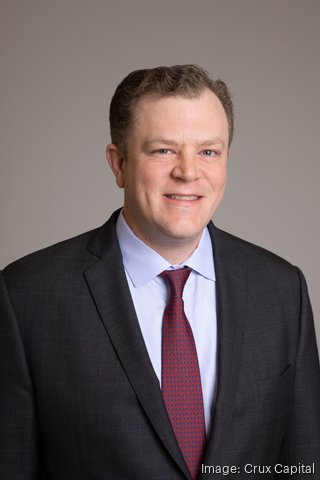Crux Capital Managing Partner Discusses Investing in the Dallas Business Journal
Original Article: Dallas Business Journal - August 18, 2020
Crux Capital’s strategy focuses on investing in regional companies that are in “Dallas and a three-hour flight away,” the firm’s managing partner Wayne Moore recently told Rebecca Ayers of the Dallas Business Journal in their sit-down interview.

This hyper-regional investment approach provides a type of Lone Star State familiarity that in some ways can be an advantage, Moore said.
“When you’re making investments in companies, I often tell people, this is like a marriage,” Moore said. “It’s going to be one of the most important decisions you make in picking a private equity partner.”
Crux Capital is a Dallas-based investment firm that invests in companies between $1 million to $10 million EBITDA. The shop doesn’t invest in energy or real estate and only does majority investments, he said.
The firm’s portfolio companies include commercial landscaping service company Superscapes and retail chain Buff City Soap Co., which announced in May that it was moving its headquarters from Memphis to Dallas, the Memphis Business Journal reported.
Moore spoke with the Dallas Business Journal about due diligence, its limited partners and what’s ahead.
What are the challenges Crux Capital has experienced with due diligence in this social-distancing environment?
At the very beginning, people didn’t want to travel. We didn’t want to travel, no one knew what was going on. I think your third-party groups wouldn’t necessarily want to travel. That can just disrupt your due diligence process. Also, it’s — what level of comfort do you have being at the company offices? Which is absolutely an essential part of doing due diligence and having face-to-face discussions and meetings with not only the CEO but down into the middle of an organization. What level of comfort does the other side have? It has frankly made deals very difficult to execute, particularly the very height of what I would call COVID-19 in terms of just fear. Consequently, for the most part you just saw a dramatic decrease in M&A activity. We’re starting to see that open up much more.
Does Crux Capital have private equity funds or what type of model does your firm have?
We’re what I would almost call a hybrid model. Our capital comes from two different places. The first would be Crux Capital itself, which is me and my colleagues. That is one of the big differentiating factors between our firm and your typical private equity firm is that we invest quite a bit in the deal. If you look at our second investment, which is Superscapes, the general partnership, which is myself, my colleague, our operating partner, we invested roughly around 10 percent of that deal. That’s a very high percentage in private equity.
The second source of funds are our limited partners, those are people, institutions, groups, many of which I’ve had relationships with for 15 plus years. They’re family offices, small institutions, managers of hedge funds of other private equity firms that don’t do small deals, these are very high net worth individuals… They’re given the choice if they want to participate or not. Then, that is a group that makes that individual deal. If you look at our progress so far all of our limited partners that invested in our first deal also participated in our second deal. We’re continuing to grow that base over time.
What is your investing strategy going ahead for the year?
We’re actively looking to find acquisitions, but we’re not forced to. We’re not going to make ourselves do something that doesn’t make sense… We really want to view COVID-19 as an opportunity, more than anything else. I think one of the things that we’ve done to do this is seeing if we can do one or two deals during this period that are incredible opportunities and amazing potential investments. Yet, the only reason we have the chance to do those acquisitions is because of COVID-19.
What are industries where we feel great about their long-term prospects, but they might be having issues now, where owners would be more likely to sell than before? Not because they’re desperate, but because they’ve definitely lived through a very difficult period and that might change their view on selling their business.
